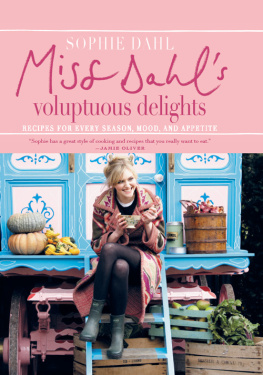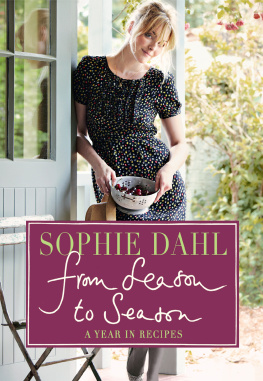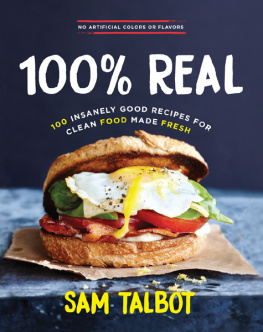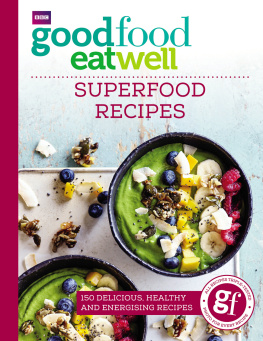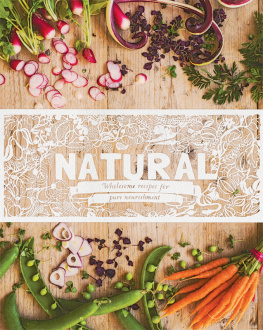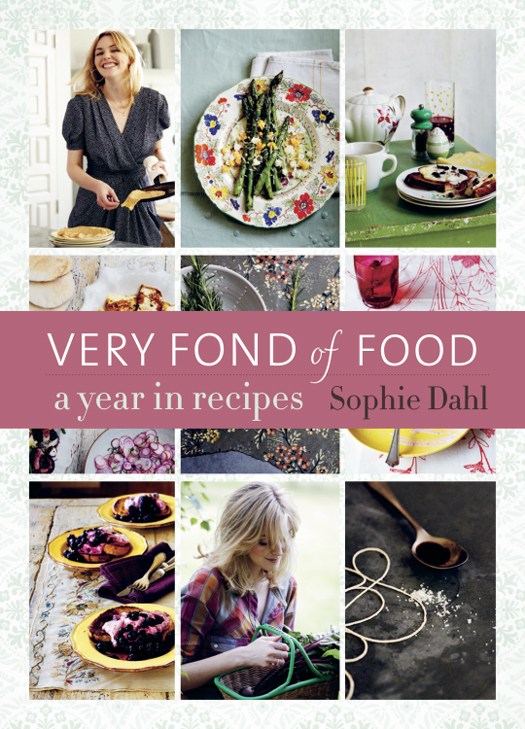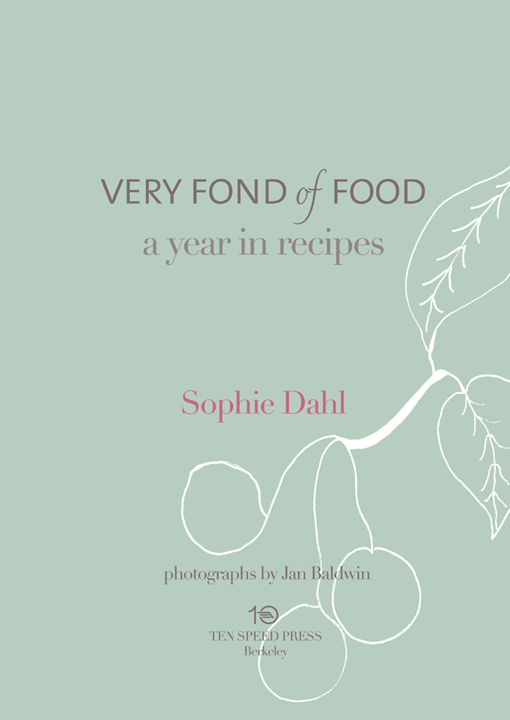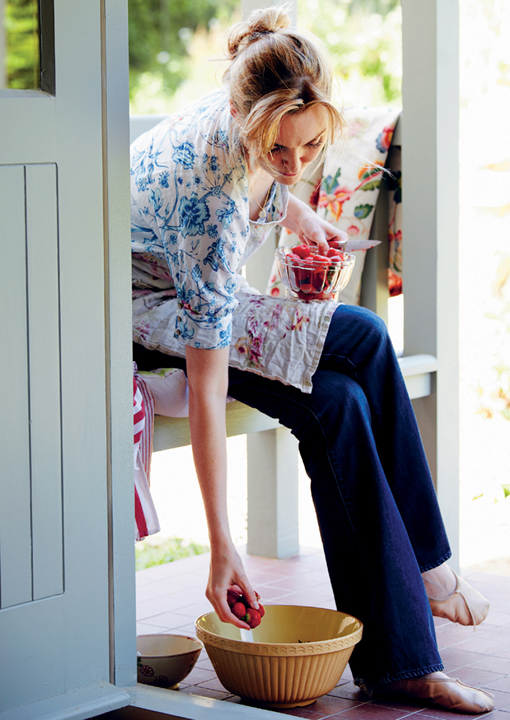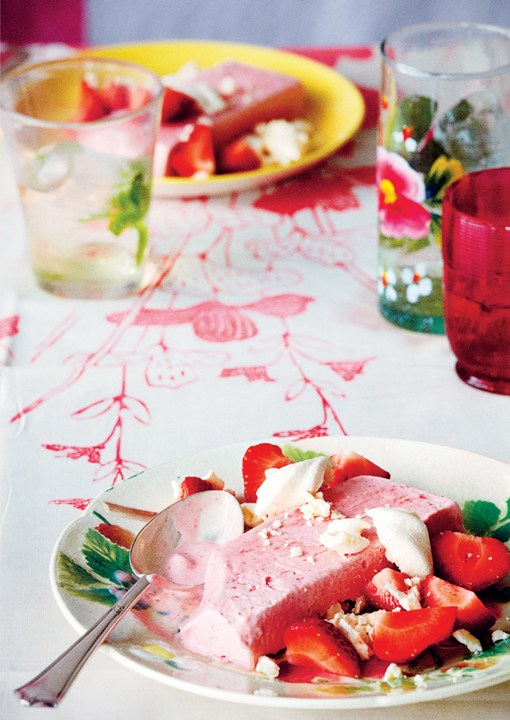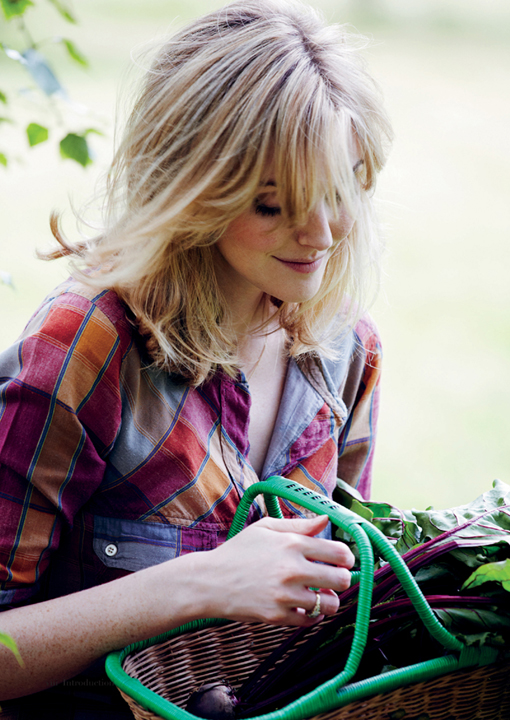Copyright 2011 by Sophie Dahl
All rights reserved.
Published in the United States by Ten Speed Press, an imprint of the Crown Publishing Group, a division of Random House, Inc., New York.
www.crownpublishing.com
www.tenspeed.com
Originally published in slightly different form in hardcover in Great Britain as From Season to Season: A Year in Recipes by HarperCollins Publishers, London, in 2011.
Ten Speed Press and the Ten Speed Press colophon are registered trademarks of Random House, Inc.
First Ten Speed Press edition, April 2012
copyright Getty Images
Library of Congress Cataloging-in-Publication Data
Dahl, Sophie, 1977
Very fond of food : a year in recipes / by Sophie Dahl; photography by Jan Baldwin. 1st American ed.
p. cm. (From season to season)
Includes index.
Summary: A cookbook that interweaves personal anecdotes about food and the good life with 100 simple seasonal recipesProvided by publisher.
1. Cooking. 2. Menus. 3. Cookbooks. I. Title.
TX714.D345 2011
641.5dc23
2011039339
eISBN: 978-1-60774-179-4
Art Director: Patrick Budge
Photographer: Jan Baldwin
Food Stylist: Alice Hart
Prop Stylist: Emma Thomas
Illustrator: Sophie Dahl
Cover Designer: Toni Tajima
v3.1
For my Jamie, as everything is.
And to my grandmother, Patsy Louise, who had the courage of a lion and loved her family, along with avocados, cheap wine, and hymns.
SD
Contents
Cooks notes
All pepper is freshly ground black pepper. I also like to use a coarse sea salt like Maldon.
Im a big believer in free-range, cruelty-free products. To that end, try and buy dairy and meat from a supplier you trust, one who treats their animals with respect.
We are overfishing our painfully understocked oceans. To get a list of types of fish that are sustainable and plentiful, please go to the Marine Stewardship Council website at www.msc.org.
Stock: I use fresh or, if being lazy, Marigold Vegetable Bouillon or Kallos Organic Free-Range Chicken Stock.
Good usefuls to have in the larder and fridge, in no particular order and given in haphazard fashion:
Belazu Balsamic Vinegar (really thick and syrupy)
Miso paste (for dressings and marinades)
Rice vinegar
Tahini
Pomegranate molasses
A good, strong mustard
Tamari
Mirin
Marsala
Horseradish root
A bunch of fresh herbs
Tarragon
Parsley
Coriander
Chives
Argan oil
Pumpkin seed oil
Some good-quality dark chocolate
Some cheap chocolate for eating on the spur of the moment or when miserable
Lemons for zesting
Chickpeas
Lentils (both Puy and yellow)
A good homemade garam masala
Star anise
Cardamom
Arborio rice
An onion
Some garlic
Pearl barley for soups and stews
Arrowroot for thickening gravies or sauces for the gluten-free
Spelt flour
Good vanilla extract
Runny honey
Fresh coffee
Stock in ice-cube trays in the freezer
Sunflower seeds to toast and add to salads and bread
Introduction
Its a question of discipline, the little prince told me later on. When youve finished washing and dressing each morning, you must tend to your planet.
Antoine de Saint-Exupry, The Little Prince
In my last book, Miss Dahls Voluptuous Delights, I began with writing that many of our grandparents ate healthfully and seasonally before there was a name for it, eating with an innate common sense and practicality that somehow, along the way, many of us have forgotten. This doesnt stand for everyones grandparents, as I discovered on a book tour to Denmark. A journalist there asked me if I knew what her grandparents were eating fifty years ago. I knew from her smile I was on treacherous ground and took a deep breath of preparation.
No, I demurred politely. What did they eat?
LARD! she said. They lived on lard and potatoes! I eat far better than they would have ever dreamed! What do you think of that Miss homegrown-seasonal-vegetable-garden-have-a-walk-every-day?
I immediately morphed into a filmic parody of Hugh Grant and said something very English and vague like, Well, yes, I dont know what everyones grandparents ate, hmm, easy to generalize, mutter, ho hum. And blushed.
Under the gaze of watchful Danes, I stand corrected then, and speak only for my own grandparents, who grew fruit and vegetables in their garden, buying fish from the local fishmonger, meat from the local butcher, and dairy from their local farmer. Every meal on their table came to fruition with an unspoken nod to seasonality and availability.
I am keenly aware that if you are a busy working parent, or if you live somewhere isolated, sometimes all that is on offer (or is bearable) is a one-stop shop. I am sometimes guilty of it myself. But I also believe that if each one of us makes a concession towards being a conscious consumer, we are in turn making an active contribution to looking after our lovely planet, which has enough exterior torment going on in it without us adding to it.
We are blessed in England to have our very definite seasons. Sometimes they feel never ending, dragging winter in particular, but the reward is tangible, both in the garden and on the plate. There is a finite certainty to the seasons that I, as a neurotic ever-pursuer of order, find blissfully predictable.
I like knowing that on a damp autumn evening, while the wind is pounding at the windows, I can transport myself with a bowl of molten comfort, a soup of squash and Parmesan, served with a thick hunk of buttered bread. This is when food meets the call of the weather, as its hard to imagine the summer when its been replaced by lashing rain. The memory of a ceviche, tart with lime, can propel you through the darkest days of winter, carrying you right to the moment when you can actually eat it in the garden, as drowsy bees sail past, the air throbbing with sun and lavender.
I come from a long tradition of home cooks. I write about some of them here. England is full of them, hundreds upon thousands of them practically more skilled than I. You only have to look within one of the many branches of the Womens Institute or similar to find women whose lemon bars are like the tender tears of an angel, whose puff pastry flakes with an unparalleled buttery grace. I worship at the altar of these culinary high priestesses. I still cant chop an onion properly, and my apple coring looks like the prelude to a horror film. I very occasionally make a cake that could be used as a weapon or forget to put the sugar in something. I am content with this haphazard state of affairs; it keeps me honest. I own an apple corer, and I make whoever is lurking in the kitchen around Sunday lunchtime chop my onions. I lob shards of my occasional missile cakes at the voracious crows poaching my raspberries. I happen to be a greedy writer who likes to cook and then write about what Ive cooked, not a chef or a teacher. If you are looking for a voice of stern culinary authority, go elsewhere! I can give you stories, and ideas for things, along with food that is lovely, simple, and straightforward. No forgotten sugar either, I promise. This book is a collection of recipes that were either written down as they were cooked; imagined late one sleepless night and then realized, admired, and reprinted; or passed down by a stoic Norwegian great-grandmother. They are all pretty easy, with minimal fussing required. I like honest cooking that speaks for itself, cooking that begs for seconds and a satisfied smile, and I truly hope that resonates from my kitchen to yours.


